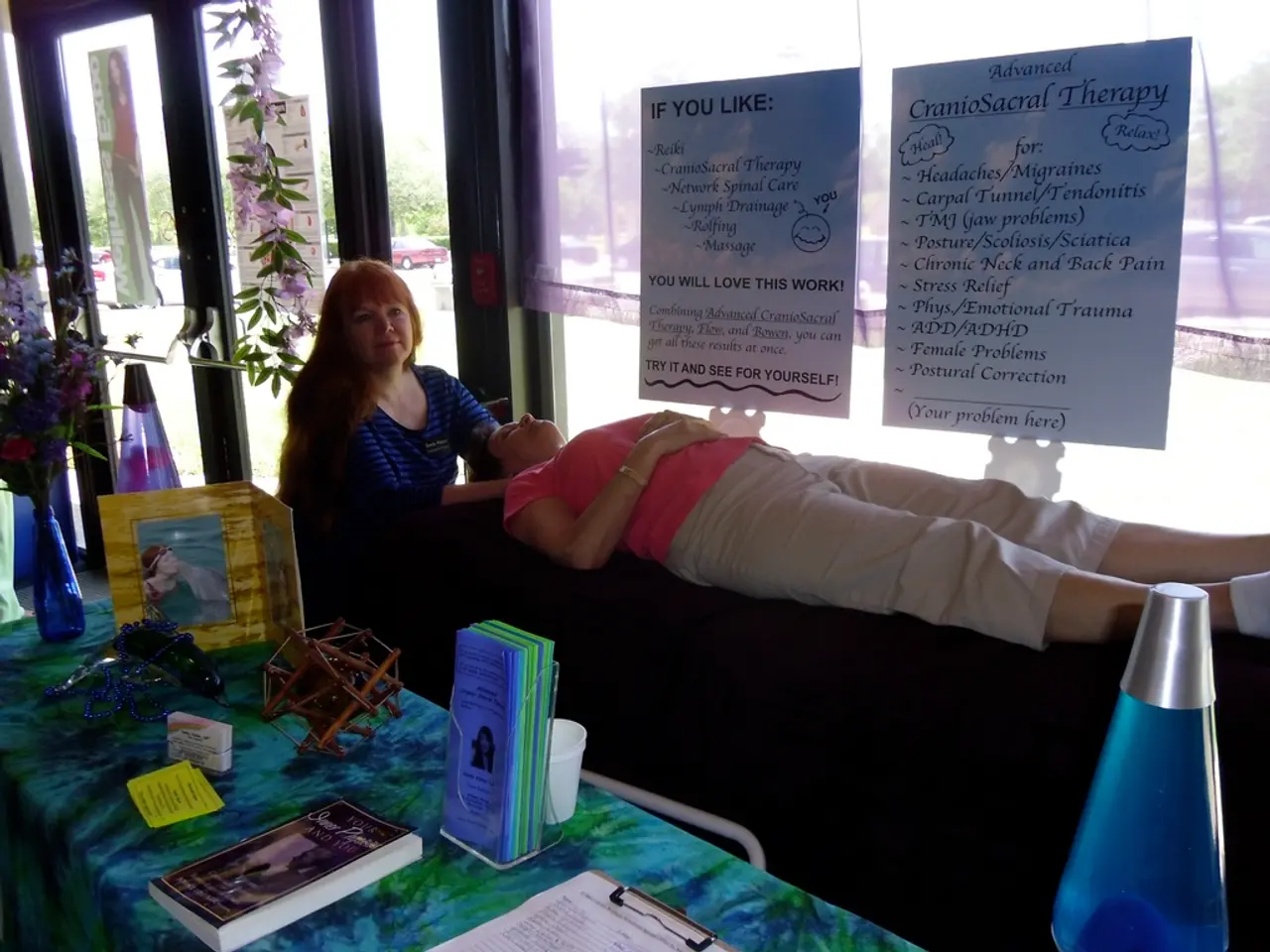Is Recovery From Depression Possible Through Brain Healing?
==================================================================
Depression, a common mental health condition affecting millions worldwide, is often characterised by feelings of sadness, hopelessness, and decreased quality of life. However, there is growing scientific evidence that the brain can heal from depression through various mechanisms.
One such mechanism involves the modulation of neural circuits and a "reset" of brain networks. Recent research suggests that treatment-resistant depression may be alleviated by interventions like deep brain stimulation (DBS) and esketamine, which appear to reset rigid, dysfunctional brain circuits responsible for mood regulation. This indicates the brain's capacity to reorganise and restore healthier communication patterns between areas implicated in depression.
Another promising approach is enhancing brain plasticity, the brain's ability to change structurally and functionally. Psychedelic compounds like psilocybin have been shown to increase brain plasticity, breaking down entrenched negative thought patterns and providing a biological recalibration that supports therapeutic breakthroughs in depression and related disorders.
Advances in understanding serotonin receptor function, particularly the 5-HT1A receptor, elucidate molecular mechanisms through which both traditional antidepressants and psychedelics affect brain chemistry and mood. This deepening molecular insight guides the development of more effective therapies that leverage the brain's own chemical pathways to reverse depressive symptoms.
Positive expectations triggered by open-label placebos can also activate endogenous neurotransmitter systems in brain networks regulating emotion and stress, demonstrating how cognitive and psychological factors can recruit biological mechanisms for healing in depression.
Non-invasive brain stimulation techniques, such as transcranial magnetic stimulation (TMS), use electromagnetic pulses to stimulate targeted brain areas and modulate dysfunctional circuits. Repeated stimulation may re-balance circuits involved in mood regulation, supporting changes in brain network connectivity that contribute to recovery in depression.
Incorporating self-care practices into daily routines, such as exercise, healthy eating habits, mindfulness meditation, or spending time with loved ones, can aid in maintaining positive mental health and support the brain's natural healing processes. It is crucial to seek professional help from a therapist or psychiatrist for managing symptoms of depression, which can involve medication, therapy, or a combination of both.
Education and awareness campaigns aimed at reducing stigma have been shown to increase the willingness to seek help among those experiencing depressive symptoms. Social support systems are also crucial for maintaining mental health, providing opportunities for emotional expression, validation, and cognitive restructuring.
Maintaining effective treatment for depression is crucial to achieving long-term recovery and preventing recurrence. This requires consistency in attending therapy sessions, taking medication, practicing good sleep hygiene, and incorporating self-care practices. While there is no one-size-fits-all approach to treating depression, effective treatments target both the biological and psychological aspects of the disorder.
It is important to remember that setbacks may occur, but by using the skills learned during treatment, individuals can better cope with difficult situations and prevent relapse. Early intervention is crucial in ensuring successful treatment outcomes for depression, as the longer someone experiences depression without receiving appropriate care, the more difficult it becomes to treat effectively.
In conclusion, depression is not a fixed state, and the brain can be "unlocked" to heal itself with appropriate stimuli. The brain's dynamic and recoverable nature offers hope for those suffering from depression, as well as their loved ones. It is essential to seek professional help, maintain consistent treatment, and incorporate self-care practices to aid in the healing process.
[1] Deep brain stimulation for treatment-resistant depression: a review of the current state of the art
[2] Psychedelics and the brain: a new frontier for psychiatry
[3] Positive expectations and the placebo effect in depression: a review of the neurobiology of treatment expectations
[4] 5-HT1A receptor function in depression: implications for the development of novel antidepressant drugs
[5] Transcranial magnetic stimulation in depression: a review of the current state of the art
- The healing journey of those with treatment-resistant depression can be facilitated through interventions like deep brain stimulation (DBS), as research suggests it can reset dysfunctional brain circuits responsible for mood regulation, particularly in areas like the 5-HT1A receptor function.
- Emotional regulation and mental health can benefit from the enhancement of brain plasticity, as shown by the use of psychedelic compounds like psilocybin, which break down entrenched negative thought patterns and support therapeutic breakthroughs in depression.
- Mental health and resilience can be strengthened by leveraging cognitive and psychological factors, such as positive expectations triggered by open-label placebos, which activate endogenous neurotransmitter systems in brain networks regulating emotion and stress.
- Health-and-wellness practices like exercise, healthy eating habits, mindfulness meditation, and maintaining relationships can aid in mental health maintenance and support the brain's natural healing processes.
- The environment plays a crucial role in recovery from depression, as education and awareness campaigns aimed at reducing stigma increase the willingness to seek help, while social support systems offer opportunities for emotional expression, validation, and cognitive restructuring.




